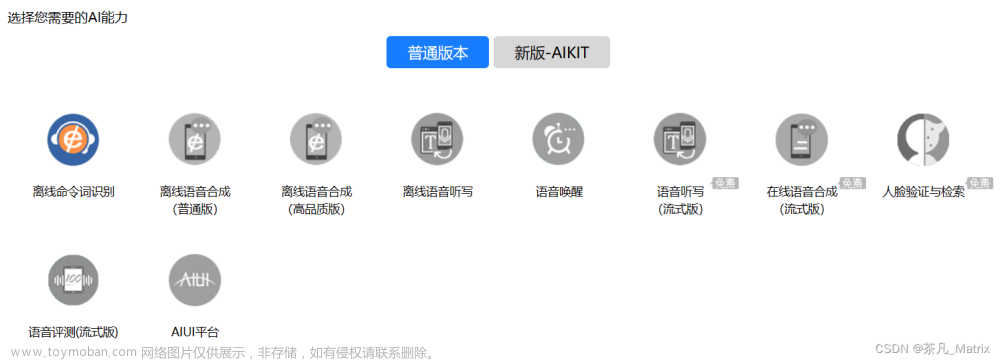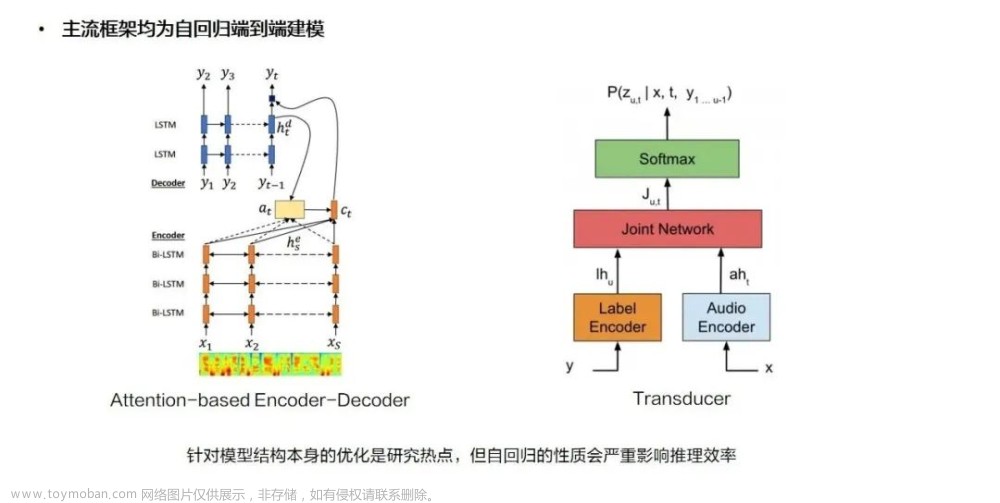【UE5/UE4】超详细教程接入科大讯飞语音唤醒SDK并初始持久监听(10102错误码解决)
先导
Windows环境下
**UE版本为UE4.27及以下
你需要具备一定的C++基础,或全程一对一对照我的代码编写你的代码
使用Offline Voice Recognition插件作为录音插件(仅做录音插件使用)
基于https://github.com/zhangmei126/XunFei二次开发
语音识别部分参考CSDNUE4如何接入科大讯飞的语音识别
在此基础上增加了语音唤醒功能,实际上语音唤醒与上述文章中是两个模块
由于讯飞插件的使用需要调用MSPLogin,也就是需要先注册
其插件中的SpeechInit()方法已经为我们注册好了,如果可以自己写注册的话,后述本文语音唤醒部分是不分引擎版本的
语音唤醒环境配置
参考UE4如何接入科大讯飞的语音识别接入科大讯飞sdk以及使用Offline Voice Recognition插件了后,在plugins中确保他们都是开启的状态

你要确保你的SDK下载的是Windows版本以及一下SDK文件包
你要确保你的SDK下载后正确导入了且appid已经拥有了正确的配置
你要确保你SDK下载后将Windows_awaken_exp1227_iat1226_af12f15d\bin\msc\res\ivw\wakeupresource.jet放置到了你的c盘根目录下
to
如果你是为了10102错误码来此文章:
此处是讯飞的坑,讯飞的wakeupresource.jet的路径必须是绝对路径
c++中也就必须要使用转义符"\\"即const char* params = "ivw_threshold=0:5, ivw_res_path =fo|c:\\wakeupresource.jet";
至此10102解决了,就这么简单,但是很坑
打开VisualStudio
- 打开讯飞插件文件夹

- 在SpeechActor.cpp中引入qivw.h

qivw.h语音唤醒具备以下方法
- 在SpeechActor.h中
#pragma once
#include "SpeechTask.h"
#include "CoreMinimal.h"
#include "GameFramework/Actor.h"
#include "SpeechActor.generated.h"
UCLASS()
class XUNFEI_API ASpeechActor : public AActor
{
GENERATED_BODY()
private:
FString Result;
DECLARE_DYNAMIC_MULTICAST_DELEGATE(FWakeUpBufferDelegate);
public:
// Sets default values for this actor's properties
ASpeechActor();
protected:
// Called when the game starts or when spawned
virtual void BeginPlay() override;
public:
// Called every frame
virtual void Tick(float DeltaTime) override;
UFUNCTION(BlueprintCallable, Category = "XunFei", meta = (DisplayName = "SpeechInit", Keywords = "Speech Recognition Initialization"))
void SpeechInit();
UFUNCTION(BlueprintCallable, Category = "XunFei", meta = (DisplayName = "SpeechOpen", Keywords = "Speech Recognition Open"))
void SpeechOpen();
UFUNCTION(BlueprintCallable, Category = "XunFei", meta = (DisplayName = "SpeechStop", Keywords = "Speech Recognition Stop"))
void SpeechStop();
UFUNCTION(BlueprintCallable, Category = "XunFei", meta = (DisplayName = "SpeechQuit", Keywords = "Speech Recognition Quit"))
void SpeechQuit();
UFUNCTION(BlueprintCallable, Category = "XunFei", meta = (DisplayName = "SpeechResult", Keywords = "Speech Recognition GetResult"))
FString SpeechResult();
UFUNCTION(BlueprintCallable, Category = "XunFei", meta = (DisplayName = "WakeUpStart", Keywords = "Speech Recognition GetResult"))
FString WakeUpStart();
UFUNCTION(BlueprintCallable, Category = "XunFei", meta = (DisplayName = "WakeUpEnd", Keywords = "Speech Recognition GetResult"))
bool WakeUpEnd(FString SessionID);
UFUNCTION(BlueprintCallable, Category = "XunFei", meta = (DisplayName = "WakeUpBuffer", Keywords = "Speech Recognition GetResult"))
bool WakeUpBuffer(TArray<uint8> MyArray, FString SessionID);
//这是一个回调函数
UPROPERTY(BlueprintAssignable)
FWakeUpBufferDelegate OnWakeUpBuffer;
};
- 在SpeechActor.cpp中
// Fill out your copyright notice in the Description page of Project Settings.
#pragma once
#include "SpeechActor.h"
#include "XunFei.h"
#include "Dom/JsonObject.h"
#include "Serialization/JsonReader.h"
#include "Serialization/JsonSerializer.h"
#include <qivw.h>
// Sets default values
ASpeechActor::ASpeechActor() :
Result{}
{
// Set this actor to call Tick() every frame. You can turn this off to improve performance if you don't need it.
PrimaryActorTick.bCanEverTick = false;
}
// Called when the game starts or when spawned
void ASpeechActor::BeginPlay()
{
Super::BeginPlay();
}
// Called every frame
void ASpeechActor::Tick(float DeltaTime)
{
Super::Tick(DeltaTime);
}
void ASpeechActor::SpeechInit()
{
FAutoDeleteAsyncTask<FSpeechTask>* SpeechTask = new FAutoDeleteAsyncTask<FSpeechTask>();
if (SpeechTask)
{
SpeechTask->StartBackgroundTask();
}
else
{
UE_LOG(XunFeiLog, Error, TEXT("XunFei task object could not be create !"));
return;
}
UE_LOG(XunFeiLog, Log, TEXT("XunFei Task Stopped !"));
return;
}
void ASpeechActor::SpeechOpen()
{
xunfeispeech->SetStart();
return;
}
void ASpeechActor::SpeechStop()
{
xunfeispeech->SetStop();
return;
}
void ASpeechActor::SpeechQuit()
{
xunfeispeech->SetQuit();
Sleep(300);
return;
}
FString ASpeechActor::SpeechResult()
{
Result = FString(UTF8_TO_TCHAR(xunfeispeech->get_result()));
FString LajiString("{\"sn\":2,\"ls\":true,\"bg\":0,\"ed\":0,\"ws\":[{\"bg\":0,\"cw\":[{\"sc\":0.00,\"w\":\"\"}]}]}");
int32 LajiIndex = Result.Find(*LajiString);
if (LajiIndex != -1)
{
Result.RemoveFromEnd(LajiString);
}
TSharedPtr<FJsonObject> JsonObject;
TSharedRef< TJsonReader<TCHAR> > Reader = TJsonReaderFactory<TCHAR>::Create(Result);
if (FJsonSerializer::Deserialize(Reader, JsonObject))
{
Result.Reset();
TArray< TSharedPtr<FJsonValue> > TempArray = JsonObject->GetArrayField("ws");
for (auto rs : TempArray)
{
Result.Append((rs->AsObject()->GetArrayField("cw"))[0]->AsObject()->GetStringField("w"));
}
}
UE_LOG(XunFeiLog, Log, TEXT("%s"), *Result);
return Result;
}
// 在 cb_ivw_msg_proc 静态函数中进行事件触发
int cb_ivw_msg_proc(const char* sessionID1, int msg, int param1, int param2, const void* info, void* userData)
{
if (MSP_IVW_MSG_ERROR == msg) //唤醒出错消息
{
UE_LOG(LogTemp, Warning, TEXT("不在"));
return 0;
}
else if (MSP_IVW_MSG_WAKEUP == msg) //唤醒成功消息
{
UE_LOG(LogTemp, Warning, TEXT("imhere"));
if (userData) {
ASpeechActor* MYThis = reinterpret_cast<ASpeechActor*>(userData);
if (MYThis) {
UE_LOG(LogTemp, Warning, TEXT("diaoyongle"));
MYThis->OnWakeUpBuffer.Broadcast();
return 1;
}
}
}
return 0;
}
FString ASpeechActor::WakeUpStart()
{
int err_code = MSP_SUCCESS;
const char* params = "ivw_threshold=0:5, ivw_res_path =fo|c:\\wakeupresource.jet";
int ret = 0;
const char* sessionID = QIVWSessionBegin(NULL, params, &ret);
err_code = QIVWRegisterNotify(sessionID,cb_ivw_msg_proc, this);
if (err_code != MSP_SUCCESS)
{
UE_LOG(LogTemp, Warning, TEXT("QIVWRegisterNotify failed, error code is: %d"), ret);
}
else {
UE_LOG(LogTemp, Warning, TEXT("QIVWRegisterNotify success, error code is: %d"), ret);
}
if (MSP_SUCCESS != ret)
{
UE_LOG(LogTemp, Warning, TEXT("QIVWSessionBegin failed, error code is: %d"),ret);
}
return FString(sessionID);
UE_LOG(LogTemp, Warning, TEXT("QIVWSessionBegin is working"));
}
bool ASpeechActor::WakeUpEnd(FString SessionID)
{
int ret = QIVWSessionEnd(TCHAR_TO_ANSI(*SessionID) , "normal end");
if (MSP_SUCCESS != ret)
{
UE_LOG(LogTemp, Warning, TEXT("QIVWSessionEnd failed, error code is: %d"), ret);
return false;
}
UE_LOG(LogTemp, Warning, TEXT("QIVWSessioniSEnd"));
return true;
}
bool ASpeechActor::WakeUpBuffer(TArray<uint8> BitArray, FString SessionID)
{
int ret = 0;
if (BitArray.Num() == 0)
{
return false;
}
else
{
int audio_len = BitArray.Num();
int audio_status =2; // 设置音频状态,这里假设为MSP_AUDIO_SAMPLE_LAST
ret = QIVWAudioWrite(TCHAR_TO_ANSI(*SessionID), BitArray.GetData(), audio_len, audio_status);
if (MSP_SUCCESS != ret)
{
printf("QIVWAudioWrite failed, error code is: %d", ret);
return false;
}
return true;
}
}
至此准备工作完成
打开我们的蓝图
-
在确保你的Offline Voice Recognition插件打开的前提下添加vosk插件

-
考虑本文的应用环境需要他初始化时就持续监听
故而让其开始运行时就开启录音(语音唤醒需要录音文件才能监听)
 文章来源:https://www.toymoban.com/news/detail-845666.html
文章来源:https://www.toymoban.com/news/detail-845666.html
- 接下里我们需要注册讯飞,并且在运行结束释放讯飞注册

4.讯飞注册后等待两秒注册我们的wakeup语音唤醒
- 绑定一个唤醒事件

3. 在设置一个1.1秒的定时器
4. 定时器内部(正在语音识别默认值为false)


5. 语音唤醒的自定义事件(唤醒五秒钟后恢复继续监听)
蓝图文件以绑定
author:Dacimal
定制化开发联系:19815779273(不闲聊)文章来源地址https://www.toymoban.com/news/detail-845666.html
到了这里,关于【UE5/UE4】超详细教程接入科大讯飞语音唤醒SDK并初始持久监听(10102错误码解决)的文章就介绍完了。如果您还想了解更多内容,请在右上角搜索TOY模板网以前的文章或继续浏览下面的相关文章,希望大家以后多多支持TOY模板网!











